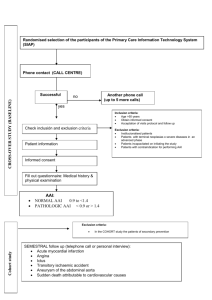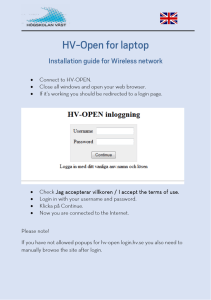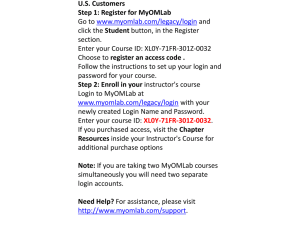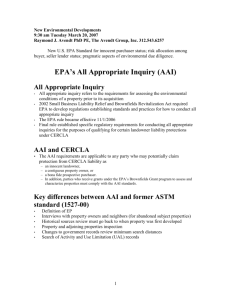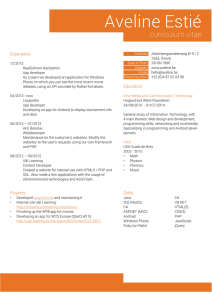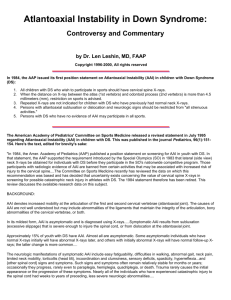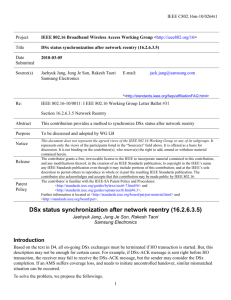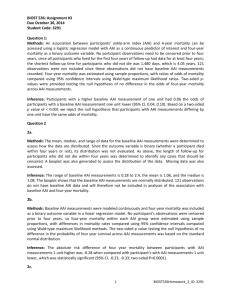Mobile Proxy
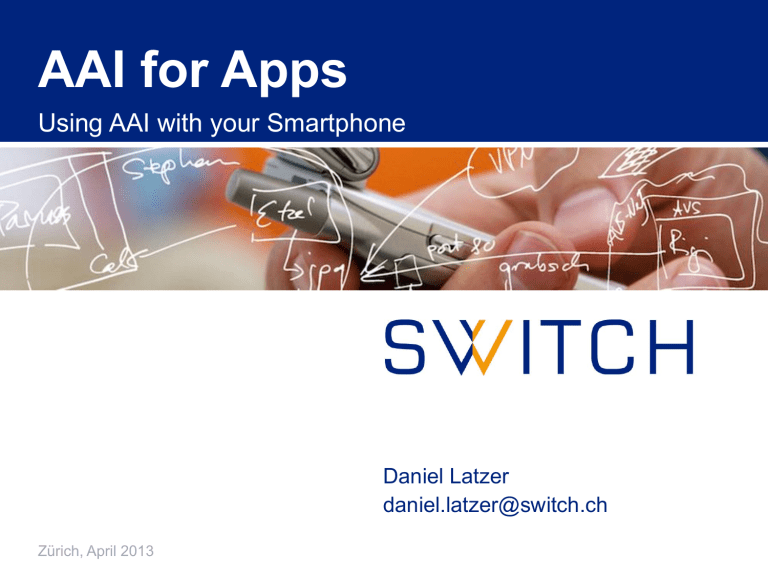
AAI for Apps
Using AAI with your Smartphone
Zürich, April 2013
Daniel Latzer daniel.latzer@switch.ch
The Problem
• Smartphone apps got very popular
• Universities want to develop their own apps
• No easy way to authenticate users in apps using AAI
– Either user has to log in on every app start
– Or the app stores the user credentials
– App emulates browser and performs login
2
The Solution: Mobile Proxy
• OAuth2 authentication server
• Mobile Proxy requests one initial AAI Login per app
– Creates OAuth2 Access token
• Access token is used to
– Authenticate with Mobile Proxy
– Retrieve up-to-date AAI attributes from Mobile Proxy
– Retrieve arbitrary protected resources from third party resource server
• Access token is valid for an extended period of time
– No need to log in every time you use the app
– May be revoked using a separate web interface
3
OAuth2
• Framework to log in to a service using third-party credentials
• Exchanges user credentials for access tokens
– Credentials do not need to be stored
– Access tokens permissions can be limited to the necessary
4
Architecture
AAI Login
Access Token
Access Token
AAI Attributes
Mobile Proxy
AAI Attributes
AAI IdP
Verify Login
Access Token
Protected Data
Resource Server
5
Login Flow
6
Redirection from Browser To App
• After the AAI login is complete, the IdP redirects back to the Mobile Proxy
• The Mobile Proxy then displays a Page with a refresh header, pointing to a custom URL scheme:
– uniapp://{app-name}/{access_token}
– e.g. uniapp://demo/4yCjmdDlCtb8eWNNnmdrVKH1Kq1To0dVMLvu
• The mobile app is designed to react to this URL scheme and is opened.
• The access token is read out of the URL and stored in the app
• Login complete
7
Desktop Login Flow
8
AAI Attribute Query
• All SWITCHaai IdPs support stored persistentIDs
– PersistentID stored in database with mapping to user's attributes
– Allows getting attributes for a user identified by persistentID
– Attribute Query can be performed by SP without user interaction
– Query can only succeed if user has accessed service at least once
• How to make Attribute Queries
– resolvertest binary can be used to make attribute queries
• bundled with Shibboleth but slow
– AttributeQuery Plugin for Shibboleth 2.5
• Created by NII (GakuNin federation, JP)
• Provides a handler to make fast Attribute Queries via web
/Shibboleth.sso/AttributeQuery?nameID=....&entityID=....
9
Attribute Retrieval
10
Mobile Proxy Overview
• Features
– Lightweight OAuth2 Server to map an AAI Persistent-ID to an access token
– Provides REST/JSON interface
– Web interface for revoking access to specific tokens
– Supports multiple Apps with different attribute requirements
• Requirements
– PHP 5.3
– MySQL
– Shibboleth 2.5
11
Example App Overview
• Sample application that can be used as basis for own App
• Features
– 2 login methods
• Via integrated mobile phone web browser
• Via a PC to support alternative login mechanisms like X.509
• Requires user to type a URL and a code or use QR code
– Retrieves up-to-date attributes from IdP via Mobile Proxy
– Retrieves application-specific data from a resource server
• Requirements
– Android 2.2+
12
Availability
• Mobile Proxy and App were created as proof-of-concept
• BSD License
• Webpage and additional information https://www.switch.ch/aai/support/tools/aai-for-apps.html
13
